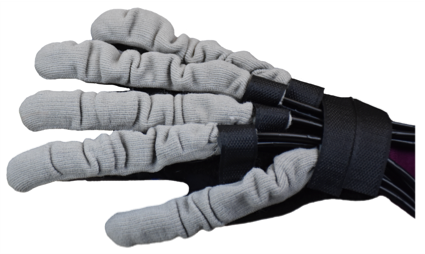PROJECT ABSTRACT
Since the early 1990’s, robots have been used to aid the treatment of people with neuromuscular disabilities and soft robotics offers a unique platform due their inherent conformability to the body and enables safe human-device interaction. Previous studies showed that soft pneumatic actuators (SPAs) have great potential to build wearable devices for rehabilitative purpose. A general approach to manufacture SPAs is based on using elastomeric materials such as silicone and rubber; and then pneumatic pressure is employed to power actuators. Although elastic materials offer some superior properties, some properties of elastomeric materials – material density, stiffness, and strength - present challenges in wearable applications. As the soft robotics domain ventures into more comprehensive and demanding applications, sensor information becomes key to achieve high task performance, and thus the seamless integration of soft actuating and sensing parts is needed to achieve a continuum of sensing and actuation. Sensors also need to have similar material properties (modulus, extensibility) to be used for the actuator themselves in order to not to hinder the actuator’s performance. To address the challenges mentioned above, I will employ textile materials to achieve both sensing and actuation and computerized flatbed knitting technology will be primarily utilized for the fabrication of such structures and soft robotic glove as a hand rehabilitative device will be constructed. The combination of the acquired new technical skills, the advanced training received, the research management experience and the international and inter-sectoral mobility of this fellowship will significantly diversify my competences. This will enhance my capacity to pursue an independent academic career, i.e., to build my own lab after the fellowship and to apply for international grants both in soft robotics and wearable technologies.
